


Dear Deputies, We, the board of the Guernsey Hospitality Association, are today taking the unusual step of writing to all deputies to seek your help in protecting and enhancing the future of tourism and the visitor economy in the Bailiwick of Guernsey.
We do so with regret and after much deliberation because, despite our best efforts, it is no longer possible to have a meaningful relationship with the Committee for Economic Development or its president, Deputy Neil Inder.
Matters have come to a head with the unilateral imposition by the CfED of a Tourism Management Board (TMB), which is tasked with producing the Tourism Strategy that the CfED itself was supposed to have been working on since at least July 2021.
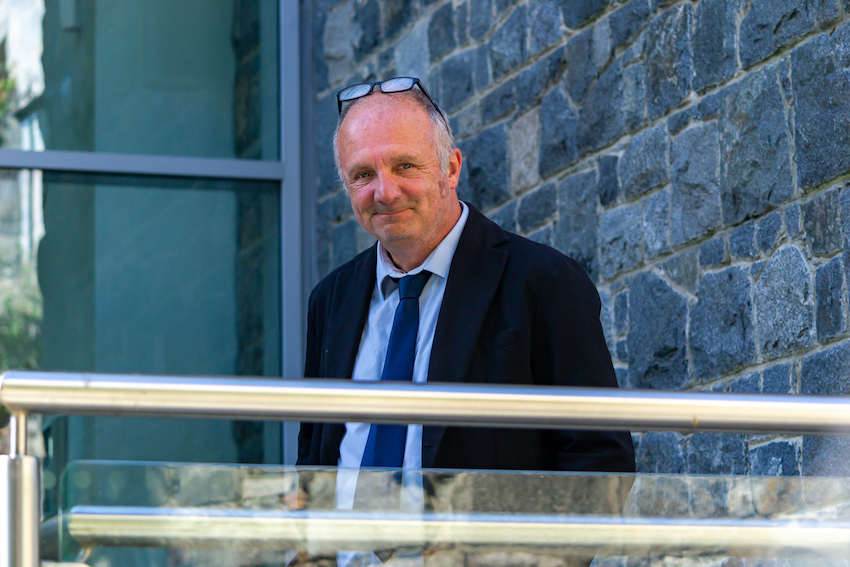
Pictured: Deputy Neil Inder.
So not only are we now back to square one on creating a strategy vital for the direction and future growth of the visitor economy, the TMB itself is utterly the wrong vehicle for that, as we believe the CfED’s own consultant, have emphasised to Deputy Inder and his committee.
Also, in a media statement CfED stated that the TMB is made up of stakeholders and an independent Chair. Whilst we don’t in any way question the integrity of the person appointed as the new Chair, as MD of Island Coachways they are clearly not independent.
To be clear, we cannot, nor will we, engage with the TMB. The GHA membership represents approximately 85% of the island’s accommodation sector and 75% of the total hospitality sector with real estate asset values into many millions of pounds. Whatever the TMB does manage to produce by way of strategy it will still be a strategy that has had little input from the major stakeholder of the industries view of what will be needed to ensure the visitor economy can grow and continue to make a positive and growing contribution to the island’s economy and GDP. This could have been avoided had an ALO, as suggested by the Beecham report, been proposed.
We record in more detail below how this breakdown in the relationship between industry and the CfED has occurred. Before we do so, however, we set out what we are asking of you, as a deputy with an interest in safeguarding and enhancing a major Bailiwick industry.
In short, the future of the visitor economy is best served in our view by:
The immediate suspension of the TMB.
Ensuring Deputy Inder ceases to act as de facto CEO of VG.
The appointment of a shadow board of government and industry figures to discuss the way forward whose main job would be:
Some background
As you’d expect from a responsible body like the GHA, we have tried repeatedly to engage with the CfED, but with limited success. To illustrate that, we recently wrote to the committee setting out our concerns and asking relevant questions. The response, which took seven weeks, ignored the vast majority of our points.
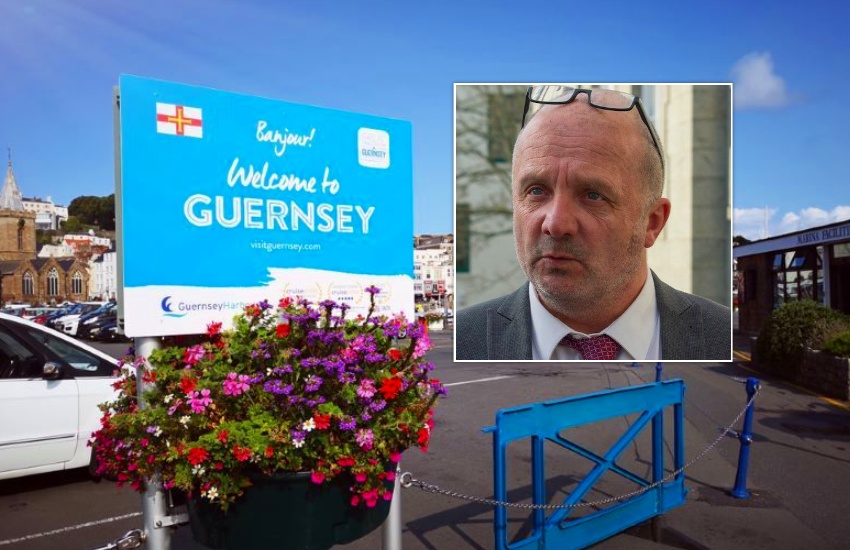
Pictured: The Guernsey Hospitality Association Board says it can't work with Deputy Inder.
The importance of rebuilding tourism has been recognised by the States of Guernsey (July 2021) and is one of the Top 10 action points in the Government Work Plan. Yet the CfED’s response, in setting up the TMB and other decisions it has taken, is to:
It is a crying shame that the CfED has wasted the gift of time to re-organise Tourism, post pandemic, with a brand-new entity that would show ambition and clear plans for growth. In doing so, the CfED has ignored the views of the GHA, and disregarded the spirit of growth in the GWP. And by outsourcing the responsibility of the Tourism/product/strategy/action plan to the TMB has kept all the power and decision-making at a political level.
During this time a Tourism Product Development Policy Letter, a Tourism and Accommodation Strategy, a Tourism Strategy that would be a set of objectives, and now a Tourism Action Plan have all been talked about by the President of CfED – but nothing delivered.
Why we are opposed to the TMB
Around two years ago we recommended that a Tourism industry expert (Keith Beecham, the former Deputy CEO of Visit Britain and CEO of Visit Jersey) be invited to Guernsey to write a report with his recommendations on the future model of a new Tourism Body for the Bailiwick. The CfED eventually agreed with us and that was put in place.
During the first half of last year Mr Beecham consulted with many industry people, including members of the GHA. He completed his work and sent in his paper to the CfED. We thought it would have been fair and positive for CfED to share the report with us, because its findings are clearly vital to the future of our industry. But after two requests to view the report, we have been told it will not be shared – an indication of the difficult relationship we have with the CfED.
Our understanding, however, is that Mr Beecham did not recommend the development model selected by the CfED, namely the TMB.
What’s needed, and what Mr Beecham proposed, is a full-time professional body with a truly independent CEO who has equal power and responsibility, plus adequate funds, to manage a hard-nosed tourism business that punches above its weight, aided by someone like Keith Beecham (ex-Jersey Tourism CEO and consultant to CfED) who knows the intimate workings of our chief competitor, and who can take Guernsey to where we want to be, faster and cheaper second time around.
End the neglect by CfED
Our challenge is to double our industry’s GDP for the good of Guernsey and as a repayment of the faith shown during the pandemic, when we were grateful for the significant support we received from government. That’s why we as Tourism’s representative body are committed to investing for growth – not sleepwalk towards a path of managing decline.
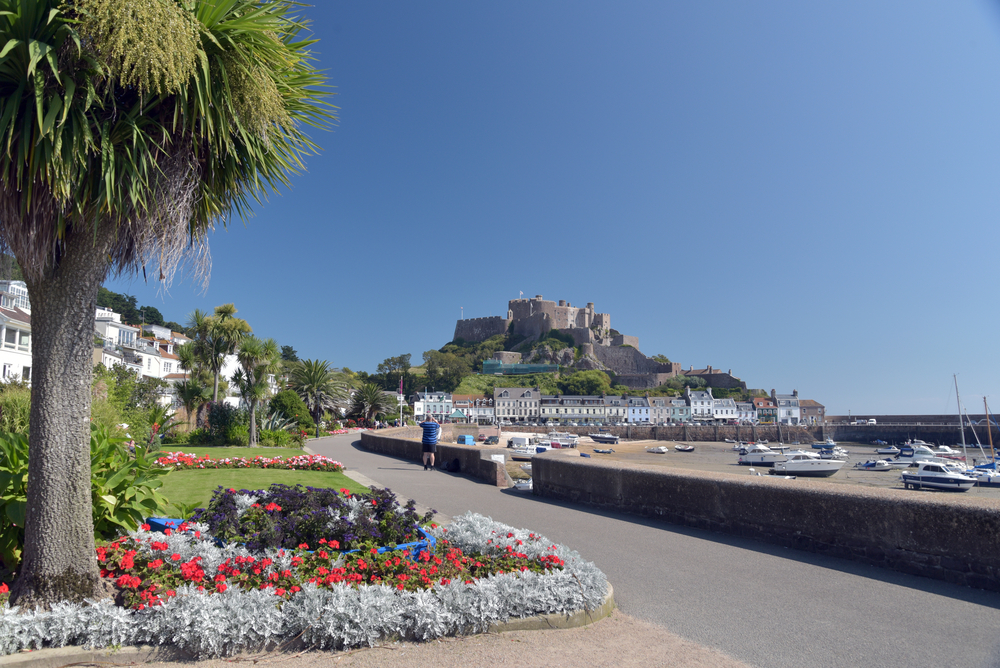
Pictured: Comparisons have been drawn between the work of Visit Guernsey and Visit Jersey with Gorey Castle pictured.
There was very little data collection last year. Visit Jersey re-commenced an exit survey last season. There hasn’t been an industry seminar for three years. There hasn’t been a Tour Operator Workshop for three years. VG had no presence at the World Travel Trade Show in November 2022.
Over recent years Visit Guernsey’s budget has been reduced, with significant staffing cuts. The lead officer at VG also has a full-time job as States Director of Communications, so, in effect we have a part-time lead of VG, and will now have a very much part-time Chair of the Tourism Management Board. This is not sustainable.
Looking at this, we hope you are asking yourselves, “Where is the ambition from the CfED? Where is the clarity? Where is a plan for growth?
How does Deputy Inder think air passenger numbers can reach a level that will be above 2019’s statistics in the very near future under his current vision? That’s especially the case with 22% of the island’s visitor bed stock being used as a sticking plaster for the housing crisis with visitor beds being used as long-lets for essential workers. That, too, is not a sustainable business plan.
In 2019 the visitor economy brought in £146M directly into the island. As industry experts and professionals, we truly believe another 25% can be added on top of that amount through indirect benefits such as refurbishments, maintenance, suppliers’ revenue, employment and housing permits, taxis, hire cars, retail, insurance, TRP, alcohol duty, income tax, social security, etc, etc. This points to a GDP higher than often publicly stated.
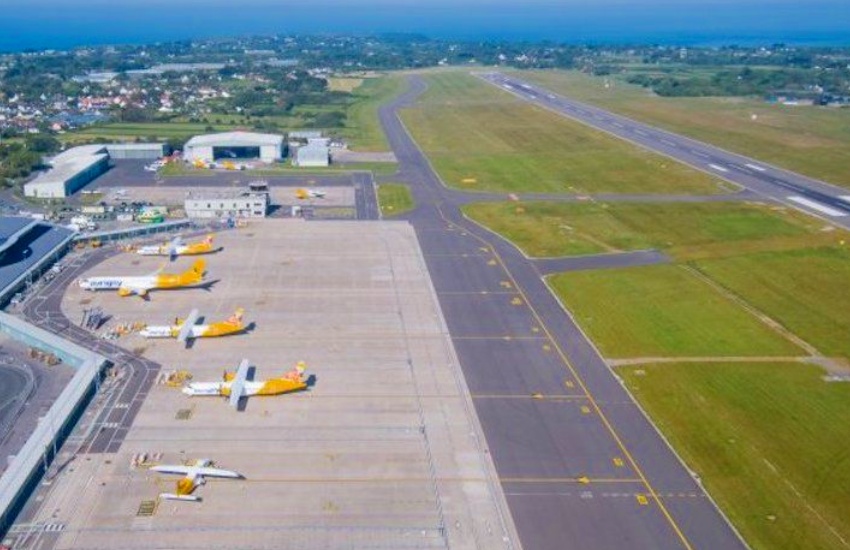
Pictured: The likelihood of any investment in Guernsey Airport is a query made by the GHA.
Our industry is vital to this island. It underpins air and sea links. It is vital to the finance industry, as would our No.1 sector be so strong without the bars, restaurants, and hotels, and travel routes we underpin?
Investing in Tourism
As you will see from this, the difficulties we have been experiencing with Deputy Inder’s leadership of the tourism element of Economic Development’s responsibilities have been protracted and extensive. So why are we “going public” in this manner now?
Because we were taken aback when Deputy Inder said he was going to investigate the options around the possibility of introducing a visitor levy as per the ‘Fairer Alternative’ amendment recently brought to the States by Deputy Soulsby and seconded by Deputy St Pier.
Our surprise is not because the GHA is against the idea, but because we presented a Growth for Tourism plan to Deputy Inder in early October 2021, which actually included an overnight stay levy.
We appreciate our plan was not the finished article. It was an outline plan with ideas for the future of Guernsey’s Tourism Body that we spent many hours working on, but Deputy Inder chose to ignore it.
For the avoidance of any doubt, our idea for the overnight stay levy was a way for the accommodation sector to pay back some of the funds that it had received throughout the pandemic, and contribute towards Tourism related works including the set-up and operation of brand-new Arms-Length-Organisation (ALO), which would have meant a professional team pushing to reach targets without the constraints of working within a government department. This would have also meant the nett amount of operating costs of the destination management organisation (Visit Guernsey) being reduced.
At the beginning of this political term there was much talk about trimming the number of civil servants, and making savings within government. And we had a plan that would do just that.
The organisation would operate without any civil servants. There would have been four States officials sitting on a board along with respected industry leaders, who would meet with the ALO management leads on a quarterly basis to oversee key performance indicators and for sound governance reasons. Also included in the package was a small percentage of the levy to go the GHA so it could remain sustainable, do more work for the industry, and act as a conduit between the ALO, government, and industry.
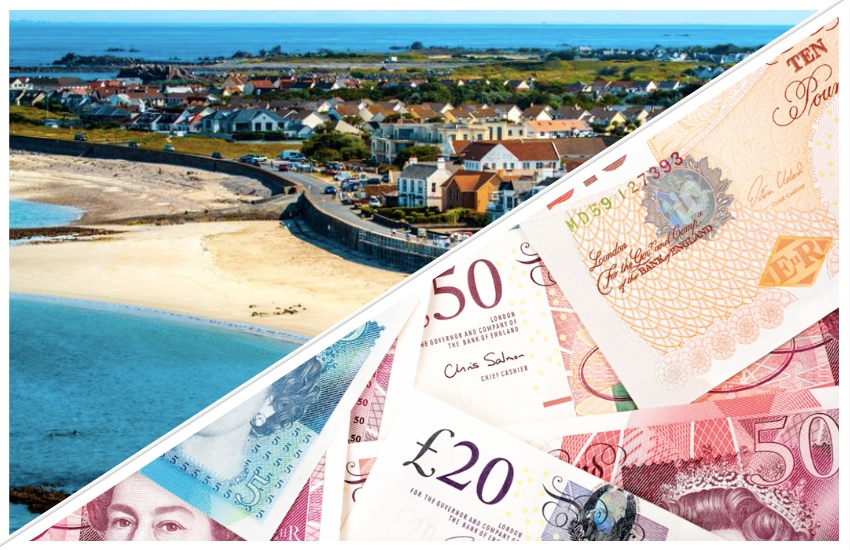
Pictured: The Guernsey Hospitality Association Board wants investment in its industry and its prepared to pay towards that itself.
Another important point to make on our plan was it would to a very large degree take the personality problem out of Tourism management. As there would be very little or no government involvement in the operation of running the organisation, simply independent professionals who would be results driven and working on achieving targets that would be clearly set out in advance.
We still very much believe in our outline plan. It would need tweaking, updating, with more detailed information, but it is wrong to ask us to carry out further works on our plan without government support, which hasn’t been forthcoming.
So, please note that we actually gave government a green light to tax our own industry – and it was ignored.
What next?
We appreciate there is much to take in and we apologise for the length of the letter to you. But as you will understand, there is much at stake here. The business of Tourism is a serious full-time affair for us, so we need to make the case as clearly as possible that the interests of the visitor economy and its benefits for the island are not currently being well served under Deputy Inder’s leadership direction.
What are we asking for from you? As outlined above:
We appreciate that might be a big ask and repeat our invitation to you to meet to discuss this crisis in the relationship we have with the States committee tasked with managing the sustainable growth of the island’s economy.
If you can do just one thing, however, please ask for the release of the Beecham report on the future of Tourism. It will show how misguided and damaging Deputy Inder’s insistence on a Tourism Management Board is and why it has to be stopped.
Yours Sincerely,
The Guernsey Hospitality Association Board
Alan Sillett, Jamie Le Friec, Ian McBoyle, Karel Harris, Andy Coleman, Andrew Chantrell, Paul Scambler, Áine Sillett (all pictured top)
*Please see our website links to our members page (3 tabs) which shows you that we represent;